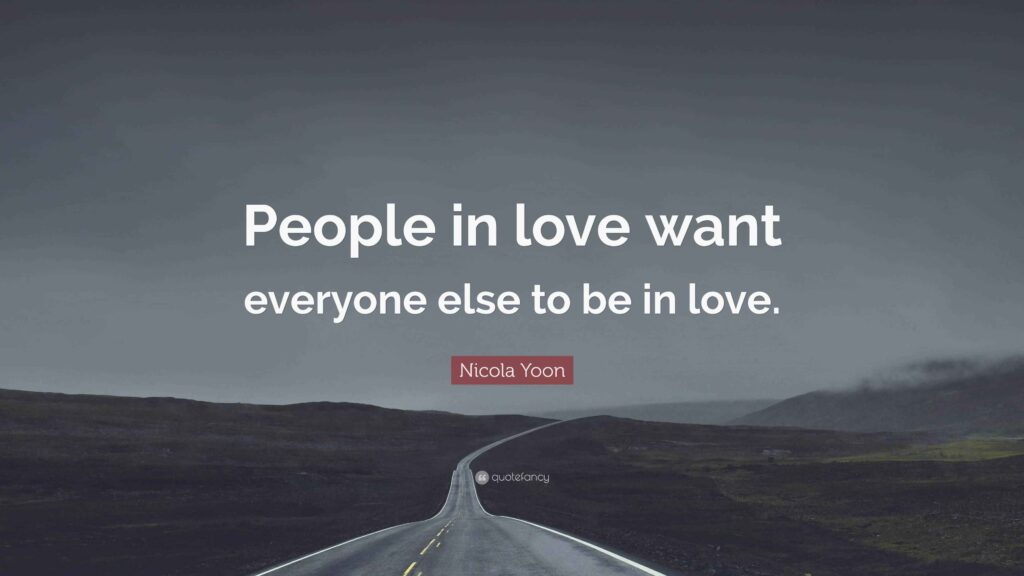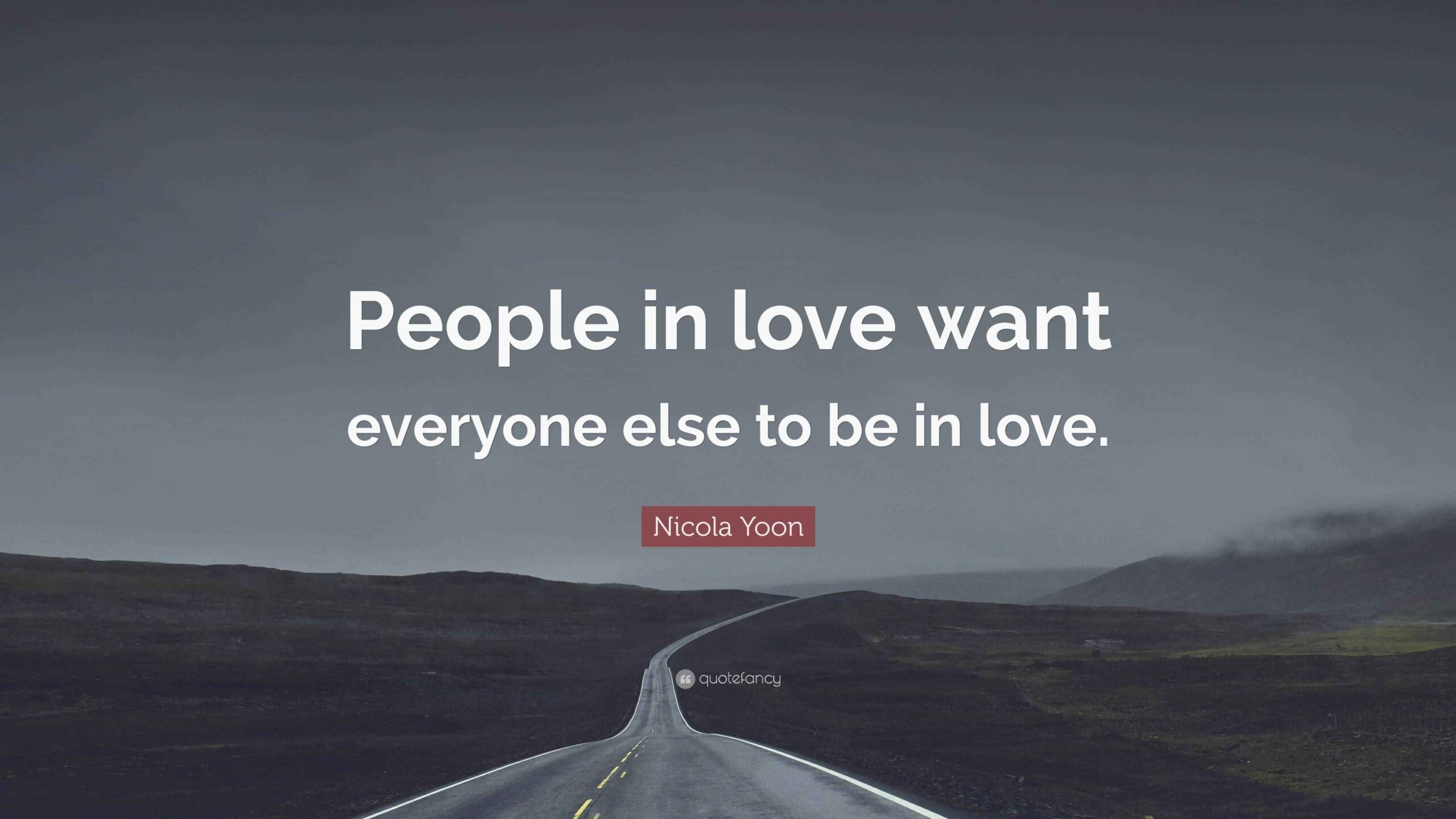
The Yearning Heart: Exploring Why You Want to Be in Love
The human desire for connection is a powerful force. It drives us to form friendships, build families, and, perhaps most powerfully, to want to be in love. This yearning is deeply ingrained in our psyche, influencing our behavior, shaping our expectations, and coloring our experiences. But what exactly is it about being in love that holds such universal appeal? Why do so many of us actively want to be in love, sometimes even when we’ve been hurt in the past? This article delves into the multifaceted reasons behind this profound human longing, exploring the psychological, social, and even biological factors that contribute to our desire for romantic connection.
The Psychological Drivers Behind the Desire for Love
At its core, the want to be in love stems from fundamental psychological needs. Abraham Maslow’s hierarchy of needs places love and belonging right after physiological and safety needs, highlighting its crucial role in human well-being. Feeling loved and accepted contributes significantly to our sense of self-worth and overall happiness. A loving relationship provides a safe and supportive environment where we can be vulnerable, authentic, and truly seen for who we are.
- Security and Stability: Love offers a sense of security and stability, providing a refuge from the uncertainties of life. Knowing that someone has your back, that you have a partner to navigate challenges with, can be incredibly reassuring.
- Emotional Validation: A loving partner validates our emotions, making us feel understood and accepted. This validation is essential for emotional well-being and helps us develop a strong sense of self.
- Reduced Loneliness and Isolation: In an increasingly connected yet often isolating world, love offers a powerful antidote to loneliness. Sharing your life with someone, having someone to confide in, and experiencing intimacy can significantly reduce feelings of isolation.
- Personal Growth: Healthy relationships foster personal growth. Partners challenge each other, encourage each other’s dreams, and provide honest feedback, helping each other become better versions of themselves.
The Social and Cultural Influences on Our Romantic Desires
Beyond individual psychology, social and cultural factors also play a significant role in shaping our desire to want to be in love. From fairy tales to romantic comedies, our society is saturated with narratives that idealize romantic love as the ultimate source of happiness and fulfillment. These cultural messages can create unrealistic expectations and pressures, but they also reinforce the idea that love is a desirable and valuable goal.
Social norms and expectations also influence our romantic desires. Many cultures place a high value on marriage and family, and individuals may feel pressure to find a partner and settle down. This pressure can be particularly strong for women, who may face societal expectations to prioritize relationships and motherhood. However, regardless of gender, the desire to conform to social norms can contribute to the want to be in love.
The Biological Basis of Romantic Love
While psychological and social factors are important, it’s also crucial to acknowledge the biological basis of romantic love. Love is not simply a feeling; it’s a complex neurochemical process that involves the release of various hormones and neurotransmitters, such as dopamine, oxytocin, and vasopressin. These chemicals create feelings of pleasure, attachment, and bonding, reinforcing our desire to seek out and maintain romantic relationships.
Dopamine, often referred to as the “pleasure chemical,” is released during the initial stages of attraction and infatuation, creating feelings of euphoria and excitement. Oxytocin, known as the “love hormone,” is released during physical touch and intimacy, promoting feelings of bonding and trust. Vasopressin, another hormone associated with attachment, plays a role in long-term pair bonding and commitment. These neurochemical processes contribute to the intense emotions and motivations associated with romantic love.
The Downsides of Idealizing Love and the Importance of Realistic Expectations
While the desire to want to be in love is natural and understandable, it’s important to approach romantic relationships with realistic expectations. Idealizing love and believing in fairy-tale endings can lead to disappointment and heartbreak. No relationship is perfect, and all relationships require effort, compromise, and communication. It’s crucial to remember that love is not a magic cure-all for life’s problems. It’s a complex and dynamic process that requires both partners to be committed to growth and understanding.
Furthermore, the pressure to want to be in love can lead individuals to settle for less than they deserve or to stay in unhealthy relationships. It’s important to prioritize your own well-being and to recognize that being single is not a failure. In fact, being single can provide opportunities for self-discovery, personal growth, and the pursuit of individual passions. [See also: The Benefits of Being Single]
Navigating the Journey to Find Love
If you want to be in love, there are several steps you can take to increase your chances of finding a fulfilling and healthy relationship:
- Work on Self-Love and Self-Acceptance: The foundation of any healthy relationship is self-love. Before you can truly love someone else, you need to love and accept yourself. Focus on building your self-esteem, practicing self-care, and developing a strong sense of self-worth.
- Be Clear About What You’re Looking For: Take some time to reflect on what you truly want in a partner and a relationship. What are your values, needs, and deal-breakers? Being clear about your desires will help you attract someone who is a good fit for you.
- Put Yourself Out There: You can’t find love sitting at home. Get involved in activities you enjoy, join clubs or groups, and be open to meeting new people. Online dating can also be a great way to expand your social circle and connect with potential partners.
- Be Open-Minded: Don’t limit yourself to a specific “type.” Be open to dating people who may not fit your preconceived notions. You might be surprised by who you connect with.
- Communicate Effectively: Communication is key to any successful relationship. Be honest and open with your partner about your feelings, needs, and expectations.
- Be Patient: Finding love takes time. Don’t get discouraged if you don’t find the right person right away. Keep putting yourself out there, and trust that the right person will come along when the time is right.
The Enduring Power of Love
Ultimately, the want to be in love is a testament to the enduring power of human connection. While romantic relationships are not the only source of happiness and fulfillment, they can provide us with profound joy, support, and growth. By approaching love with realistic expectations, prioritizing self-love, and communicating effectively, we can increase our chances of finding a lasting and fulfilling partnership. The journey to find love may not always be easy, but the rewards can be immeasurable. [See also: Signs You’re Ready for a Relationship]
Even amidst the complexities and challenges of modern life, the fundamental desire to connect, to share, and to want to be in love remains a powerful and beautiful aspect of the human experience. It is a yearning that drives us to seek out companionship, to build meaningful relationships, and to create a world filled with love and connection. Recognizing and understanding this deep-seated desire is the first step toward finding the love you seek and building a life filled with happiness and fulfillment.

